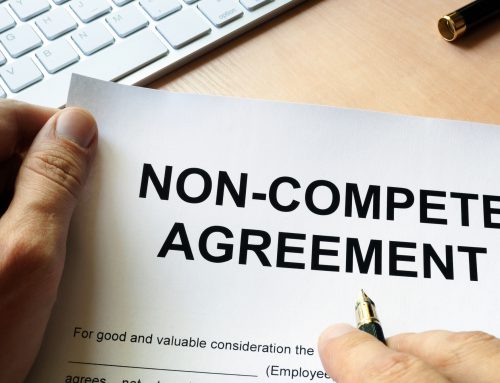In modern business, the role of in-house counsel has evolved significantly from a purely legal advisory function to a complicated role that encompasses strategic decision-making, risk management, compliance oversight and more. The in-house counsel community now plays a crucial role in shaping business strategies, ensuring legal and regulatory compliance, and fostering an ethical corporate culture. This transformation has been driven by the increasing complexity of the business environment, the growing regulatory landscape, and the need for businesses to navigate a globalised economy. This article explores the various dimensions of the role of in-house counsel in contemporary business, examining their responsibilities, the skills required, and the impact they have on the overall success of an organisation.
The evolution and importance of in-house counsel: historically, businesses relied heavily on external law firms for legal advice and representation. However, as business operations became more complex and globalised, the need for dedicated in-house legal expertise grew. In-house counsel are now recognised as crucial members of corporate leadership teams, offering specialised knowledge of both law and business operations. The shift towards in-house counsel reflects a strategic decision by companies to enhance responsiveness, mitigate legal risks proactively, and align legal strategies with overall business objectives. Unlike external law firms, in-house counsel has the unique advantage of a deep understanding of the company’s culture and goals. This allows them to provide tailored legal guidance that directly supports business goals while navigating regulatory compliance and minimising legal exposure.
Cost-effectiveness
One of the primary advantages of hiring in-house legal counsel is cost-effectiveness. Companies can significantly reduce legal expenses compared to outsourcing legal work to external law firms. By hiring in-house counsel sooner, businesses can begin saving on external legal costs earlier and limit the period during which expensive mistakes might occur.
External law firms, operating as private practices, might view your business as one of many, potentially leading to longer waiting times for responses, legal advice, and task completion. Your request will be added to their to-do list and addressed after other tasks.
In contrast, an in-house lawyer or general counsel is employed by the company and is part of the staff, often considered part of the senior management team. This allows the employer to set priorities and dictate the order of tasks, providing greater control and potentially more time-efficient results compared to traditional law firms.
Timely legal advice
Having an in-house legal counsel enhances the probability of promptly addressing legal matters such as contracts, compliance inquiries, intellectual property safeguards, employee recruitment issues, and industry regulations. Operating within the company, in-house counsel gain a deeper understanding of its culture, objectives, and legal requirements. Immediate advice from in-house counsel can preempt the escalation of potential problems and streamline the allocation of time and resources. This familiarity enables them to offer customised legal advice that meets the organisation’s specific needs, thereby enhancing the quality of their work. Additionally, being embedded within the business allows in-house counsel to prioritise legal matters effectively.
Risk management
Risk management is essential in everyday business operations. As part of their role, in-house counsel are equipped to provide guidance on various legal matters such as contracts, regulatory compliance, intellectual property, and data protection. This includes identifying and comprehensively analysing all risks, and if necessary, suggesting alternatives when risks are deemed too significant.
When business leaders seek legal advice, in-house teams should not immediately dismiss actions that seem risky. Similarly, they should avoid simply agreeing without thorough evaluation. A credible in-house legal team should also be willing to confidently decline proposals when warranted.
By leveraging in-house counsel, businesses can effectively identify and mitigate legal risks, thereby minimising the likelihood of expensive legal conflicts.
Compliance with Laws and Regulations
In-house counsel provide legal guidance to ensure that the organisation complies with laws, regulations, and industry standards relevant to its operations. This includes interpreting legal requirements, assessing their applicability to specific business activities, and advising on compliance strategies. They also play a key role in developing and implementing compliance policies, procedures, and frameworks tailored to the organisation’s needs. These policies cover areas such as data protection, anti-corruption, environmental regulations, employment practices, and corporate governance.
Effective compliance reduces legal and regulatory risks, protecting the organisation from financial penalties, litigation costs, and reputational harm; enhances trust among stakeholders, including investors, customers, regulators, and business partners and enables organisations to capitalise on business opportunities, expand into new markets, and differentiate themselves as responsible corporate citizens.
Litigation
Contract disputes with parties and third parties are common and even to be expected. Even the most carefully drafted and negotiated agreement can find itself the subject of sprawling litigation involving multiple parties, claims, and counterclaims. In-house legal counsel plays pivotal roles within corporate teams, often tasked with overseeing credit and insolvency risks for their organisations. Their responsibilities become particularly crucial when navigating the intersection of insolvency and litigation risks, guiding corporations in making strategic decisions to maximise value.
In the event of a legal dispute or litigation, in-house legal counsel can coordinate and manage the legal process. They can select appropriate external law firms at competitive prices and work with them to represent the company’s interests. In-house counsel, with their deep understanding of the business, are well-positioned to efficiently educate outside counsel on relevant facts and company practices. If a business has not hired in-house counsel by the time of its first legal dispute, it may face higher costs and potential missteps. The Forbes Business Council article emphasizes that in-house counsel can effectively manage litigation, ensuring that the company’s interests are well-represented and legal costs are controlled.
Supporting international expansion
For businesses expanding internationally, in-house legal counsel provides essential support. They navigate the complexities of international law, trade regulations, and cross-border transactions. Their expertise ensures that the company complies with local laws and regulations, mitigates risks, and seizes opportunities in new markets. In-house counsel’s role in international expansion is crucial for achieving global growth objectives. The Forbes Business Council article underscores the importance of having legal expertise to guide and support international business activities, ensuring compliance and strategic success.
Training and education
Training is a critical component of the responsibilities of in-house counsel, encompassing a range of activities designed to enhance legal knowledge, compliance understanding, and overall professional development within the organisation. This analysis delves deeper into the importance, methods, and impact of training for in-house counsel. Training programs aim to deepen in-house counsel’s understanding of relevant legal principles, regulations, and industry-specific laws. This knowledge enables them to provide accurate and timely legal advice to various departments and stakeholders within the organisation.
Organisations can conduct internal workshops and seminars tailored to the specific legal needs and challenges of the company. Topics may include new regulations, compliance updates, contract negotiation techniques, and crisis management. In-house counsel may also attend external legal education programs, conferences, and seminars organised by legal associations, universities, or industry bodies. These programs offer opportunities for networking, staying updated on legal trends, and gaining insights from experts in various fields of law. Peer-to-peer knowledge sharing and mentorship programs allow in-house counsel to learn from senior colleagues, industry peers, and external advisors, providing valuable guidance, practical insights, and professional development opportunities.
Strategic counsel
Strategic counsel is a pivotal role that in-house counsel play within organisations, involving the integration of legal expertise with business strategy to achieve organisational goals and mitigate risks effectively. In-house counsel collaborate closely with senior management and business units to understand organisational goals, challenges, and opportunities. This alignment allows them to provide legal advice that not only ensures compliance but also supports strategic initiatives and business growth.
Strategic counsel involves assessing legal risks associated with business decisions and transactions. In-house counsel identify potential legal pitfalls, propose risk mitigation strategies, and advise on the legal implications of various courses of action. This proactive approach helps safeguard the organisation’s reputation, financial stability, and operational continuity.
In transactions such as mergers, acquisitions, joint ventures, and partnerships, in-house counsel provide strategic advice on legal aspects, negotiate terms and agreements, and oversee due diligence processes. Their involvement helps mitigate legal risks and facilitates the smooth execution of strategic initiatives.
In conclusion, the role of the in-house counsel community in modern business is indispensable and complicated. By integrating legal expertise with strategic insight, in-house counsel not only ensures regulatory compliance but also contributes to organisational resilience, growth, and ethical governance. Their proactive approach to risk management, collaboration with senior management, and alignment with business objectives are crucial in navigating complex legal landscapes and driving sustainable business success. As businesses evolve in a dynamic global environment, the in-house counsel community continues to play a pivotal role as trusted advisors and strategic partners, safeguarding corporate interests and fostering a culture of legal excellence and integrity.
The Chief Corporate Counsel Club (“CCCC”) is a social-professional organisation which was established on 24 April 2024 under the auspices of the Vietnam Association of Corporate Directors (“VACD”). It serves as a platform that connects individuals working in legal departments of enterprises, practicing lawyers in law firms, and legal experts. It provides a forum for sharing, learning, and exchanging knowledge and experience in corporate law, thereby enhancing the operational quality of businesses. CCCC not only facilitates knowledge and experience sharing but also serves as a bridge between enterprises and government regulatory agencies. It aids in the dissemination and implementation of legal regulations directly to businesses, contributing to the sustainable development of enterprises and improving the investment and business environment in Vietnam.






